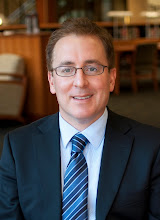[Cross-posted at PrawfsBlawg]
The Second Circuit has upheld a NYC permit regulation that prohibits all parades on Fifth Avenue (15th to 114th Streets) "unless the parade was held at that location prior to the promulgation of these rules"[2001]. The case, which was decided by a two-judge panel (then-judge Sotomayor was the third judge on the original panel), is International Action Center v. City of New York. The city's permit scheme does allow for the issuance of special permits for Fifth Avenue and other locations, for "celebrations organized by the City honoring the armed forces; sports achievements or championships; [and] world leaders and extraordinary achievements of historic significance." Absent a special permit, however, Fifth Avenue can host no more than the fifteen annual "grandfathered" parades.
The court held that the Fifth Avenue Rule is a content-neutral time, place, and manner regulation, which was justified by the usual concerns (traffic congestion, public order) and by the "over-saturation" of parades, particularly in midtown Manhattan. I don't question the court's reasoning or its disposition under current First Amendment standards (which I, like others, have criticized). The rule prohibits all "new" parades, regardless of content. Under the permissive intermediate scrutiny standard, it is justified with reference to the concerns stated above. The court found that the 100-block ban was sufficiently "narrowly tailored" and that other streets, although not "perfect substitutes," were available for parades.
The rote application of time, place, and manner standards obscures a couple of important concerns. The first is that the Fifth Avenue Rule privileges a select few organizations, those that managed to hold annual parades prior to 2001. These are primarily cultural parades or events. Yes, new events may qualify for permits on other streets. But as the court acknowledged, Fifth Avenue is a unique venue. It is arguably the most famous parade route in the city. Under the Fifth Avenue Rule, this traditional public forum will primarily host cultural events such as the Columbus Day, St. Patrick's Day, and Norwegian-American 17th of May parades. While it may not be "content-based," the Rule privileges cultural inscription over political and other types of public displays (particularly those that are spontanous). Why should "historic" parades receive an exclusive use permit for this venue? Why not a lottery, or some other system that does not simply ban all post-2001 events? The second concern is the level of discretion built into New York City's permit regulations. City officials have disregarded the Fifth Avenue Rule on certain occasions. And then there is the "special permit" regulation. What exactly constitutes a "sports achievement"? A Knicks winning streak? What are "extraordinary achievements of historic significance"?
Most will probably not be disturbed by the Rule. After all, who doesn't like Norwegian-Americans? But this disposition is of a piece with others that have limited political contention and public displays in some sacred venues. In New York City itself, protests on the Great Lawn have been limited to 55,000 persons out of concern for the condition of the lawn. Numerous public "beautification" projects are slicing up other historically significant public forums. And restrictive permit requirements have been proposed in recent years in response to public displays like the Critical Mass bike protests. The language of time, place, and manner -- "content-neutrality," "significant" government interests, "narrow tailoring," and "adequate alternative channels" -- typically fails to capture, much less halt, this erosion.
Subscribe to:
Post Comments (Atom)


No comments:
Post a Comment